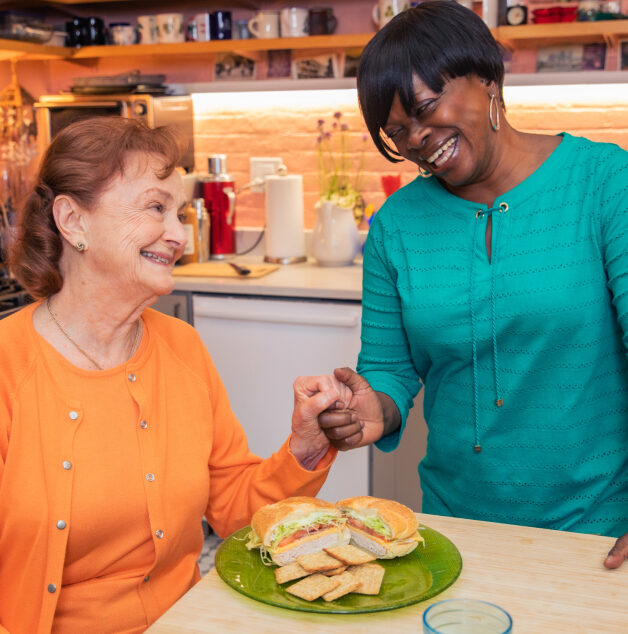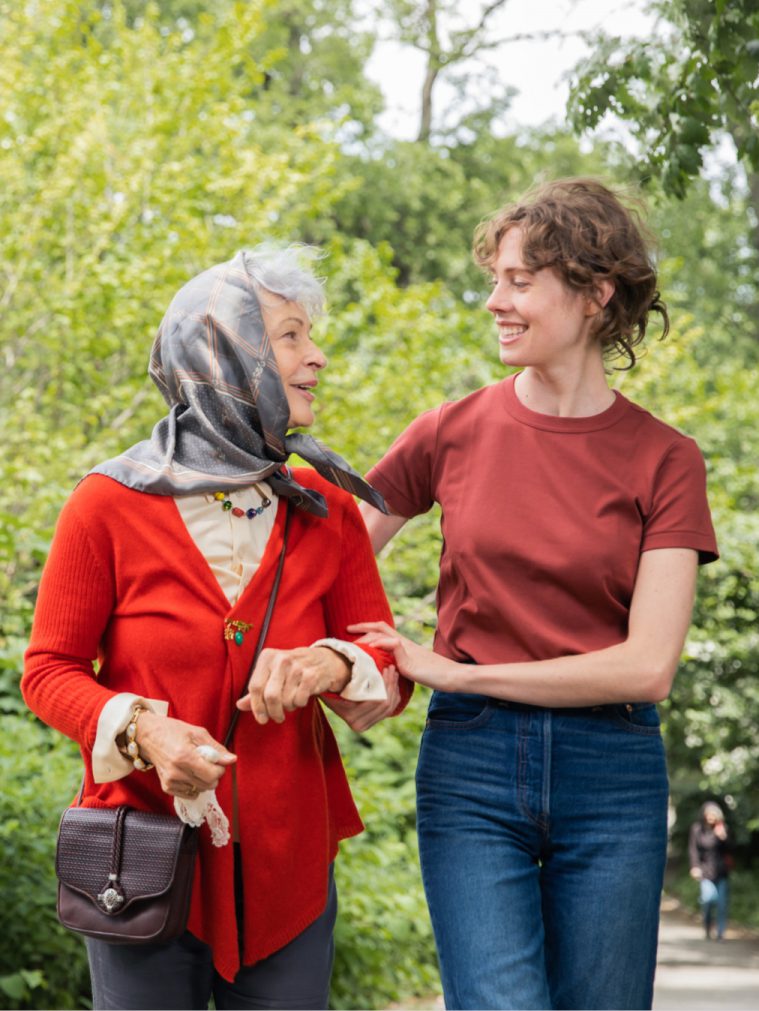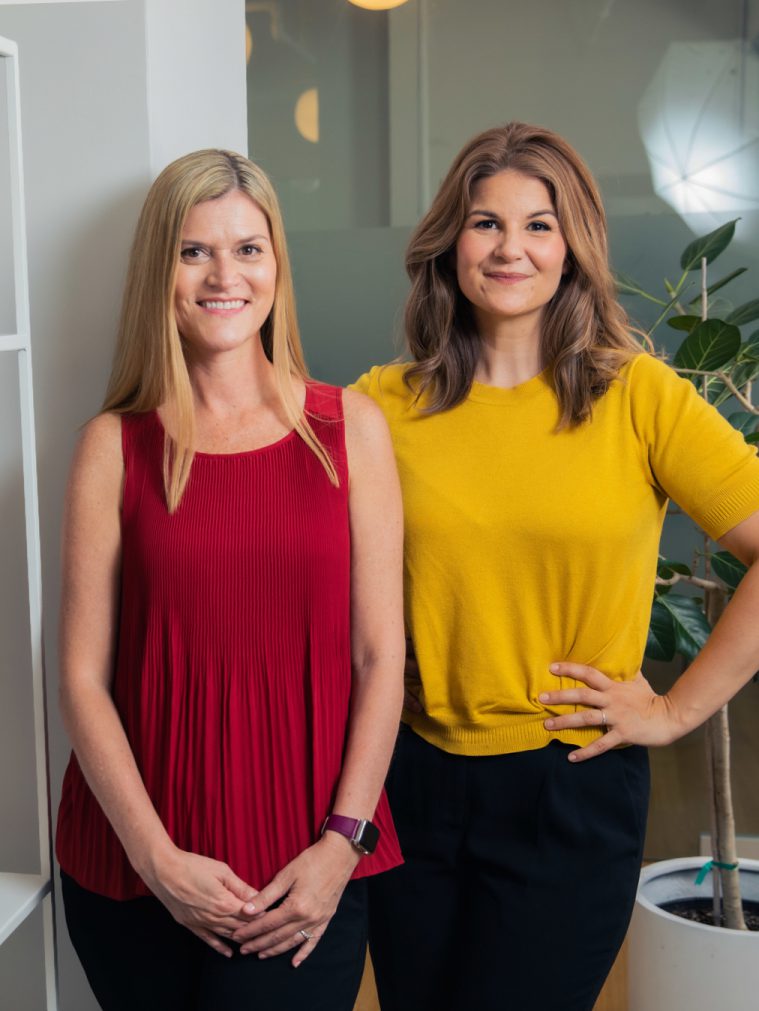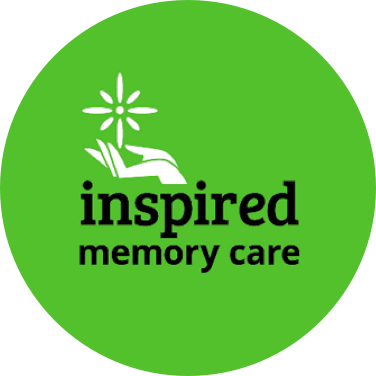
New York City

A diagnosis of Alzheimer’s disease or another form of dementia, such as vascular dementia, can be helpful for explaining the cause of certain symptoms or providing some guidelines for prognosis. Yet we strive to understand our clients as unique and elaborate individuals. This allows us to develop a personalized dementia care plan that can improve the quality of life for our clients – and help put family members at ease. We want to identify opportunities for meaningful socialization and activities, while limiting the negative emotional states that so often accompany these conditions. As we get to know our clients, we will also be able to make more informed decisions on matching the right caregiver.
We recommend our Skills Discovery service for clients who will benefit from an even more in-depth assessment and care plan. This service is provided through our partnership with Inspired Memory Care, Inc. (IMC), one of the leading memory care training companies in New York City.
An expert from IMC will visit the client to assess the specific ways in which they are affected by Alzheimer’s disease or any other form of dementia. Afterwards, they will generate a detailed report that includes: ideas for meaningful engagement, helpful adaptations for daily life, and advice for caregivers on how best to interact with the client.
The other important element of our dementia care services is a caregiver training system that combines practical knowledge on dementia with an in-depth briefing on the client receiving care. Our caregivers learn important skills for improving communication with someone who has memory loss or other cognitive deficits, along with techniques for reducing anxiety or confusion in their client. Training is an ongoing process for our caregivers, as our staff and dementia care experts continue to provide them with helpful ideas and strategies for providing better care.
Our personalized care plans are developed through an understanding of both the obstacles our clients face and their enduring strengths. As we implement adaptations that will help our clients live safely or with less anxiety, we also look for activities that build upon their strengths and invoke positive emotions.

…we often find that it’s helpful to provide subtle assistance, such as a daily medication reminder or assistance with arranging transportation to an appointment. Individuals at this stage can begin struggling to stay connected with important aspects of life, be it social engagements, hobbies, artistic or musical abilities, or just topics of personal interest. Therefore, we want to match a caregiver who has overlapping interests or abilities who can help our clients indulge their passions. Social compatibility is also very important, as our clients remain intelligent, independent people who want to enjoy their life with someone they like. A caregiver is thus truly a companion here.

…individuals can still retain many strengths. Many of our clients display a sharp intellect or strong recollection of acquired skills or knowledge, even if they have symptoms such as severe short term memory loss or limited verbal capacity. For our clients at this stage of dementia, we look to match a caregiver with patience who has the right skills to communicate and provide the appropriate emotional support. With the right approach, our clients can express themselves more fully and find connection with others. We’ll also look to implement routines and systems that limit safety risks and promote consistency.
We provide our caregivers with memory care training that teaches both fundamental concepts and practical, client-specific techniques. Through our partnership with Inspired Memory Care, our training program consists of a Level I and Level II class, along with ongoing support to reinforce important teachings.

Our clients may be diagnosed with any number of conditions, from Alzheimer’s disease to vascular dementia or Lewy Body disease. Though symptoms vary by individual, each diagnosis provides clues as to how someone may be affected by their condition, along with ideas for how best to support them. We also find that certain techniques or methods tend to apply broadly for individuals who have any form of memory loss.
We cannot understand how dementia affects someone if we do not first understand them, and therefore our caregivers need input on our clients – their preferences, attitudes, passions. In the process of learning about our clients, we look for their strengths. Rather than trying to rehabilitate all of our clients’ cognitive deficits, we want to create positive experiences from our clients’ highest areas of function. For example, one of our clients may retain a remarkable grasp of the subject matter learned over the course of their career or schooling. It’s important for our caregivers to find ways for that client to utilize and share their knowledge and strengths with others.


Our training programs and client Skills Discovery services are built in conjunction with Inspired Memory Care (IMC), a leading memory care training and consulting organization based in New York City. They have developed an outstanding reputation while training hundreds of senior care professionals working at home care agencies, assisted living communities, skilled nursing facilities, and other senior service organizations throughout the City.